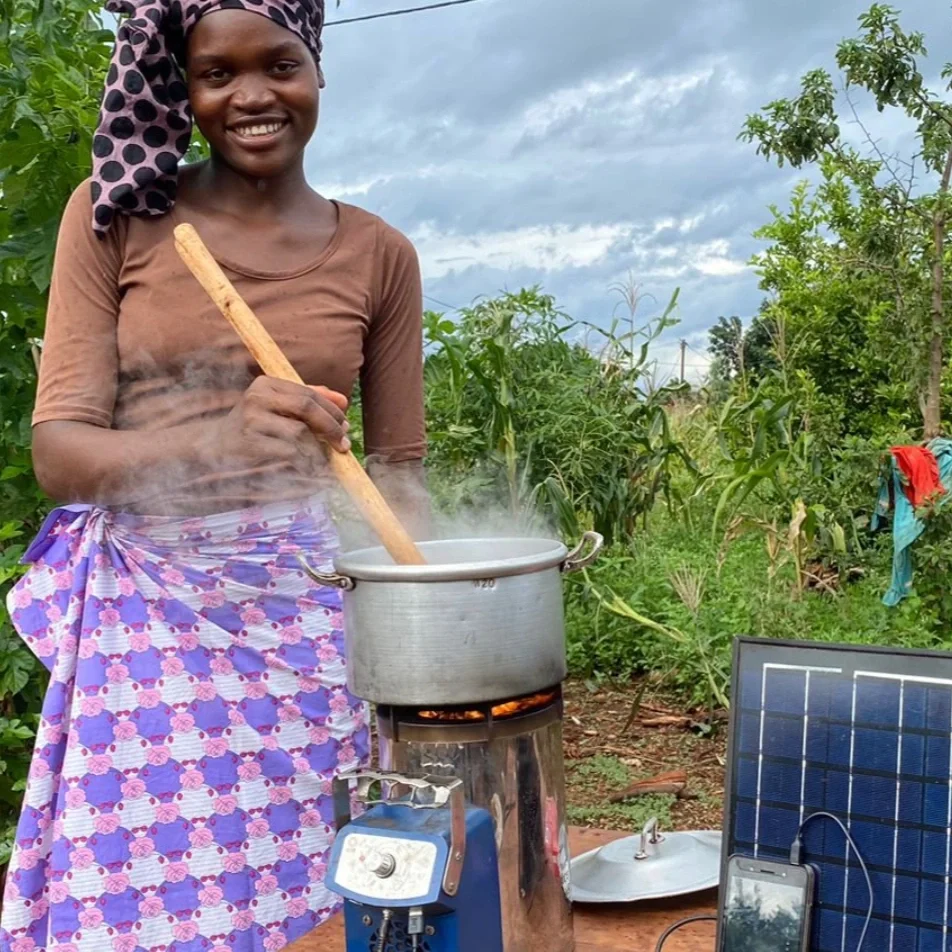Changalane Micro-Biochar Smartstove Project, Mozambique
Distribution of micro-biochar smartstoves that convert waste cashew nut shells (CNS) into clean cooking energy and biochar, reducing household air pollution and pressure on forests by displacing charcoal and firewood. Stoves are subsidised by carbon finance and distributed free of charge, with a fuel and biochar return model to support ongoing operations.Micro-Biochar Smartstove distribution project in Mozambique
Status: Two pilot projects completed; full rollout from 2024
Standard: OxCarbon
Scale Metric: 30,000 stoves per 10,000 tonnes of CNS fuel (planned)
Feedstock: Waste cashew nut shells sourced from processing facilities
Technology and MRV: Smartstoves that pyrolyse and gasify CNS; credits issued based on verified fuel consumption data uploaded from the stove and confirmed through CRM, using an OxCarbon-approved, ISO 14040:2006 compliant LCA approach

